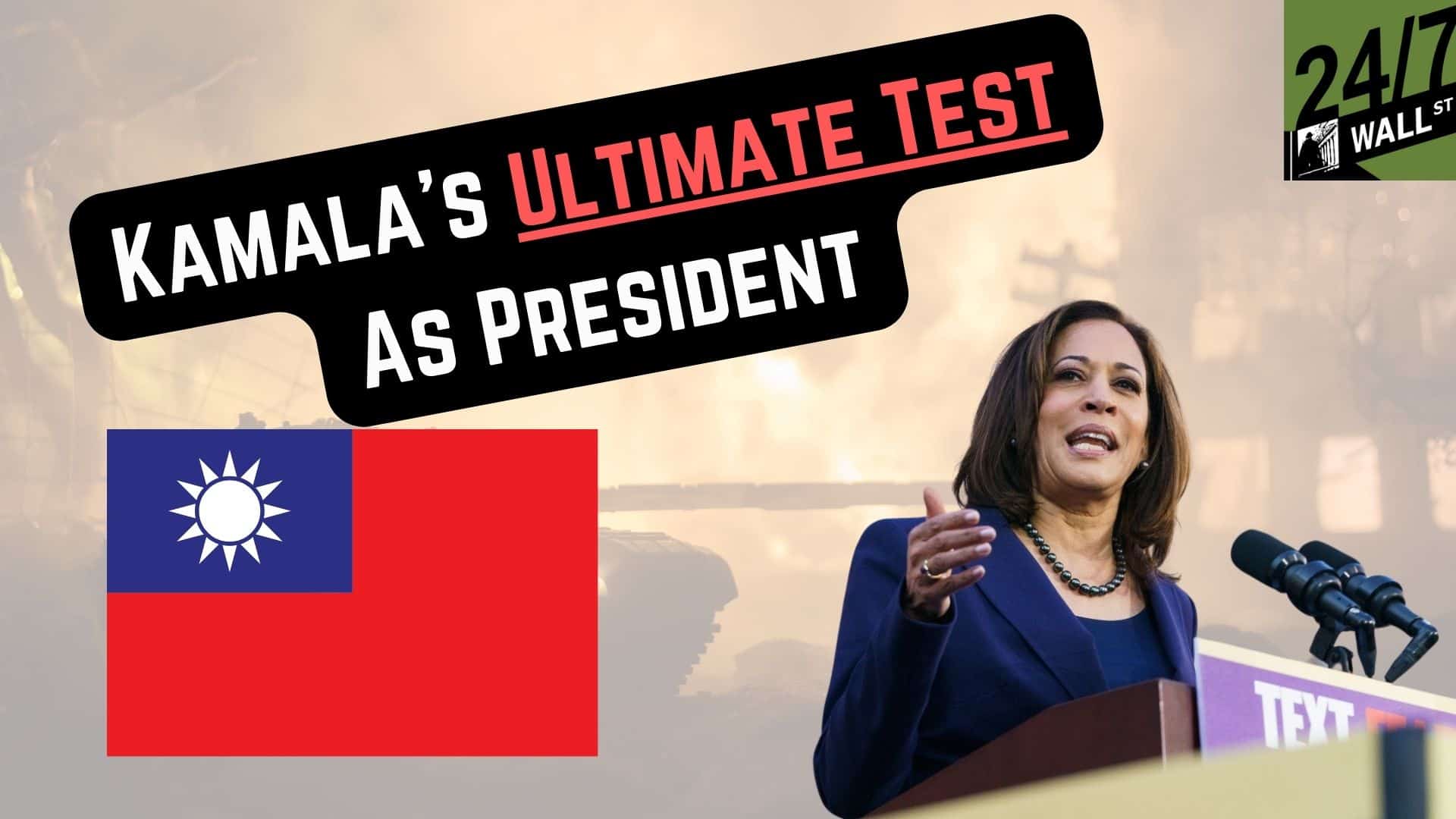
Key Points:
- Trump is favored by Taiwan for his strong stance against China with sanctions.
- Harris is expected to follow Biden’s strategy of strategic ambiguity toward Taiwan.
- Both candidates must clarify their plans for Taiwan, as it will be a key issue in the next term.
- Investors are already placing bets on 2025 and see “the next Nvidia” as the biggest winner. See for yourself.
Austin Smith and Michael Muir discuss what a potential Kamala Harris presidency might mean for Taiwan, noting that her role as Vice President under Biden serves as the best indicator. Harris has shown interest in strengthening ties with Southeast Asia, including multiple trips to the Philippines, which suggests she might focus on regional consensus building. However, Michael expects Harris to largely follow the existing U.S. policy of strategic ambiguity towards Taiwan, which has been in place since 1979. Both candidates, Harris and Trump, will likely need to clarify their Taiwan policies, as the geopolitical situation is evolving rapidly, and a clear stance may be required during the next presidential term.
Transcript:
Yeah, you know, it’s interesting when we think about Trump’s posture on Taiwan,
You mentioned he was maybe favored because of his early first presidential candidacy.
And Trump demonstrated to his credit in Taiwan’s favor, you know, a real willingness, a strength against China with sanctions and tariffs on sanctions.
Which probably had Trump sort of stand out and seemed like he was willing to stand up to China, which Taiwan would prefer.
However, we also maybe see something interesting with the Biden and Harris administration passing the Chips Act.
And, you know, maybe at least demonstrating a similar willingness to continue that, you know, an aggressive stance against China.
So let’s shift now.
You know, what do we expect that a Harris victory would mean for Taiwan, understanding that our best proxy is her role as VP in the Biden administration, not necessarily her own?
Yeah, well, she and President Lai actually met both as vice presidents at the time in Honduras,
Which at the time, that was in 2022, was one of the very few nations around the world with formal diplomatic ties with Taiwan.
They’ve since severed them.
So there’s a little bit of a personal connection there that they might be able to build on in a future relationship.
As vice president…
She’s shown a lot of interest in forming greater ties with Southeast Asia.
She’s made multiple trips to the Philippines, trying to kind of build sort of broad consensus.
So we might see a slight pivot in that region.
But I think ultimately she’s going to follow the script that Biden has.
Has laid out and Biden’s policy towards Taiwan has been very conventional.
It’s really just a continuation of a strategy that’s been in place since 1979.
And the groundwork for that was put in place in the 1970s.
So I think for the United States, strategic ambiguity will be the policy pursued until it is no longer viable.
So public statements that I’ve seen…
Going back to the Trump point, JD Vance has a kind of a wait-and-see approach.
He supports strategic ambiguity, but that’s until the status quo changes.
Kamala Harris, again, she isn’t going to be a dramatic departure from what we’ve seen with Biden.
But, you know, things can chug along for decades and then change very suddenly.
And that’s something we might see in the next presidential term.
I think at minimum, both candidates really need to clarify what they plan to do with Taiwan.
Because this is the question they’re probably going to have to answer that many of their predecessors didn’t.
You know, we’re facing a different reality.
I think bolstering Taiwan’s defenses is a sensible policy.
And then we’ll just see which candidate supports that strongest and wants to continue that.
It’s Your Money, Your Future—Own It (sponsor)
Are you ahead, or behind on retirement? For families with more than $500,000 saved for retirement, finding a financial advisor who puts your interest first can be the difference, and today it’s easier than ever. SmartAsset’s free tool matches you with up to three fiduciary financial advisors who serve your area in minutes. Each advisor has been carefully vetted and must act in your best interests. Start your search now.
If you’ve saved and built a substantial nest egg for you and your family, don’t delay; get started right here and help your retirement dreams become a retirement reality.
Thank you for reading! Have some feedback for us?
Contact the 24/7 Wall St. editorial team.





